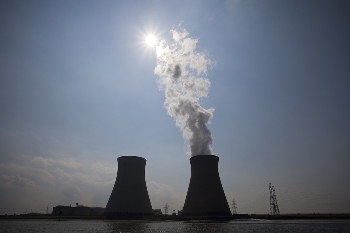- Homepage
- News
- Blogs & Articles
- Third Party Certification for Fire Risk Assessors could become Mandatory under Scottish Law

Third Party Certification for Fire Risk Assessors could become Mandatory under Scottish Law
Like it? Share it!
03 June 2016 by FIA Team, FIA Team
In the UK, there is legislation that states that fire risk assessments must be carried out in all non-domestic premises by the responsible person (or ‘duty holder’ in Scottish law), usually the employer or owner of the premises. Failure to do so is a serious breach of fire safety regulations and could result in prosecution. The reason for this is that a fire risk assessment is designed to minimise all possible risks of fire within a building in order to protect the lives of the people within. A fire risk assessment is necessary for life safety.
New Recommendation
But now, the Regulatory Review Group have published a report on Part 3 of the Fire (Scotland) Act 2005, and have made a very

What will this mean for Scotland?
crucial recommendation that could have the potential to change the law in Scotland about who can carry out a fire risk assessment.
Under current legislation, anyone can do a fire risk assessment so long as they are deemed competent, and many businesses carry these out themselves or hire a professional risk assessor who claim competency. But currently, there is a problem with fire risk assessments. Of the 315 fire risk assessments that the Regulatory Review Group inspected over a range of different premises in Scotland, only one was deemed suitable and sufficient. The other 314 were not adequate. When you look at this as a percentage, that means as little as 0.3% of businesses understand how to undertake a risk assessment correctly, which is a frightening statistic to put in place if we are to imagine that this sample is representative of duty holders throughout the whole of Scotland.
The competence of risk assessors is clearly an issue, and one that the report has highlighted. It is under this light, that the Regulatory Review Group stated that the current legislation ‘is still not working effectively and that action is required to ensure quality and competence’. But what action should be taken?
‘The Scottish Government should introduce a requirement for third party fire risk assessors to be certificated or registered to ensure competency and to help businesses receive a satisfactory and consistent service. This could in the first instance focus on those offering assessments/assessors working in high risk sectors,’ states the review.
Competency of Risk Assessors
It is the view of the FIA that third party certification of risk assessors is absolutely vital to improve the quality of risk assessments completed throughout the UK, as it is really the only way to prove the competency of the person(s) completing the risk assessment.
Third party certification simply means that an independent body inspects a company to check that they are competent enough to carry out risk assessments, comparable perhaps to passing an MOT on a car to check how safe the car is. Third Party Certification (TPC) is evidence that a service or product adheres to certain standards. An independent expert, the third party, has assessed the service or product and certified that it complies with those standards. TPC can cover the technical qualities of what is being provided, but it can also relate to environmental, ethical or other qualities. This allows purchasers to be confident that what they are purchasing is fit for purpose or that the supplier is capable of doing the job. The inspecting body then issue certification of approval and add them to their register of approved TPC companies.
The recommendation to make third party certification mandatory simply means that the industry standard for fire risk assessors as a whole would become much higher.
High-Risk Premises

Care homes are considered 'high risk' after the Rosepark incident
However, the recommendation only covers areas of high risk, and not every non-domestic premises. This falls neatly into line with current legislation in Northern Ireland, which in 2013 introduced third party certification for risk assessments in care homes.
Care homes have been identified as places that are very high risk, due to the amount of sleeping accommodation and the types of people in the building, i.e. frail, infirm, elderly, possibly with mobility issues. This is because a risk assessment doesn’t just cover buildings, it covers people within the building too.
Whilst the recommendation might only be for high risk buildings, it is a tremendous leap forward for the ultimate safety of the public. If the mandate comes to pass, new legislation will be passed stating that risk assessors will have to be third party certified for high risk buildings in Scotland, which in turn may create a ripple effect: it could further extend to other buildings that are not as high risk. Legislation can take time to come into effect, but the process is already in motion as the recommendation has been made, which may in turn spur England and Wales into considering making third party certification part of current legislation for fire risk assessors too.
A Change in the Market
But even whilst the recommendation for third party certification of risk assessors is for the greater good and safety of everyone concerned, we have to consider the implications. TPC is essentially a way of enforcing a higher standard of risk assessor, which not only means ensuring a better quality of risk assessment, it also gives everyone in the chain confidence: business owners, employers, duty holders, end users, buyers, clients, and the general public all benefit from knowing that the risk assessment has been carried out by a professional with the right skills and ability to manage fire risk. Surely this confidence will have an impact on the market.

Nuclear power stations require specialist knowledge to give
an adequate fire risk assessment
If the mandate does come to pass, the effect is likely to be twofold: expectations of people hiring professionals with TPC is likely to be higher, and therefore create demand for companies with TPC that have been approved. Secondly, the number of companies looking to become certified will increase, thereby creating a culture of highly skilled professionals. Hopefully, by making TPC mandatory by law, it should reduce the mistakes, errors, oversights and lack of skills in the sector and provide risk assessments that are above and beyond suitable and sufficient, and also reduce the amount of poor quality risk assessors and force them out the market. Fire risk assessment is an easy thing to do, but it’s a hard thing to do well, and we must ensure that skills and knowledge are up-to-date in order to provide safer environments for everyone.
There are certain sectors, as well as certain premises, that require specialist knowledge. Fire risk assessments are required for a small office employing only 14 people. Fire risk assessments are required for a petrol chemical plant, and for a nuclear power station. However, the risks involved are all very different. A risk assessor that usually assesses small offices is not likely to have the knowledge and confidence to assess the fire risk of a nuclear power station. They have different environments, different risks, and the real risk is the person carrying out the risk assessment. In a small office environment, it’s easy; the employer could do themselves if they follow the technical handbooks available. It would be more difficult to do it yourself for a nuclear power station or a petrol plant as there is so much more risk there. Specialist knowledge would be absolutely vital. Fire risk assessors should not be generalists, they should be specialists, and they should be specialists in the premises that they are risk assessing.
The Need For Skills
Therefore, there is a real and very urgent need for skills in the sector, especially for high risk properties. If the Scottish parliament did in fact decide to make third party certification of risk assessors mandatory, it would encourage risk assessors to increase their specialist knowledge and training for high risk premises.
In the meantime, however, the report highlighted that ‘the Scottish Government and Scottish Fire and Rescue Services should continue to promote the benefits of third party certification and how to select competent fire risk assessors. This should include discussions with local authorities as to whether they would be able to assist in promoting the awareness of the Act’.
Therefore, it must be said that we should all be working towards promoting third party certification schemes for risk assessors as a means to improving the quality and competence within the current marketplace. More professionalism within the sector naturally lends itself to the betterment of the quality of risk assessments, making buildings and people safer overall.
For more information about gaining third party certification status, or to find out about our Route To Certification package, click here.
TAGS
-

FIA Team
FIA Team
Related posts
-
Ensuring fire safety in schools: responsibilities, developments, and training
06 October 2023
By Neil Budd, FIA Technical manager
-
On this day, forgotten disasters: Summerland disaster
02 August 2023
By Kirsty Lavell, Marketing Manager
-
Fireside Chat with Hanif Ghodawala, Business Development Manager for Advanced Emergency Lighting Division
01 August 2023
By Kirsty Lavell, Marketing Manager
Related news
-
Fire Enforcement Notices Served on Hinkley Point C Contractors
25 February 2026
-
Business Owner Fined for Breaching Fire Safety Legislation
06 October 2025
-
Addressing Fire Safety Risks in Social Housing
11 February 2025
